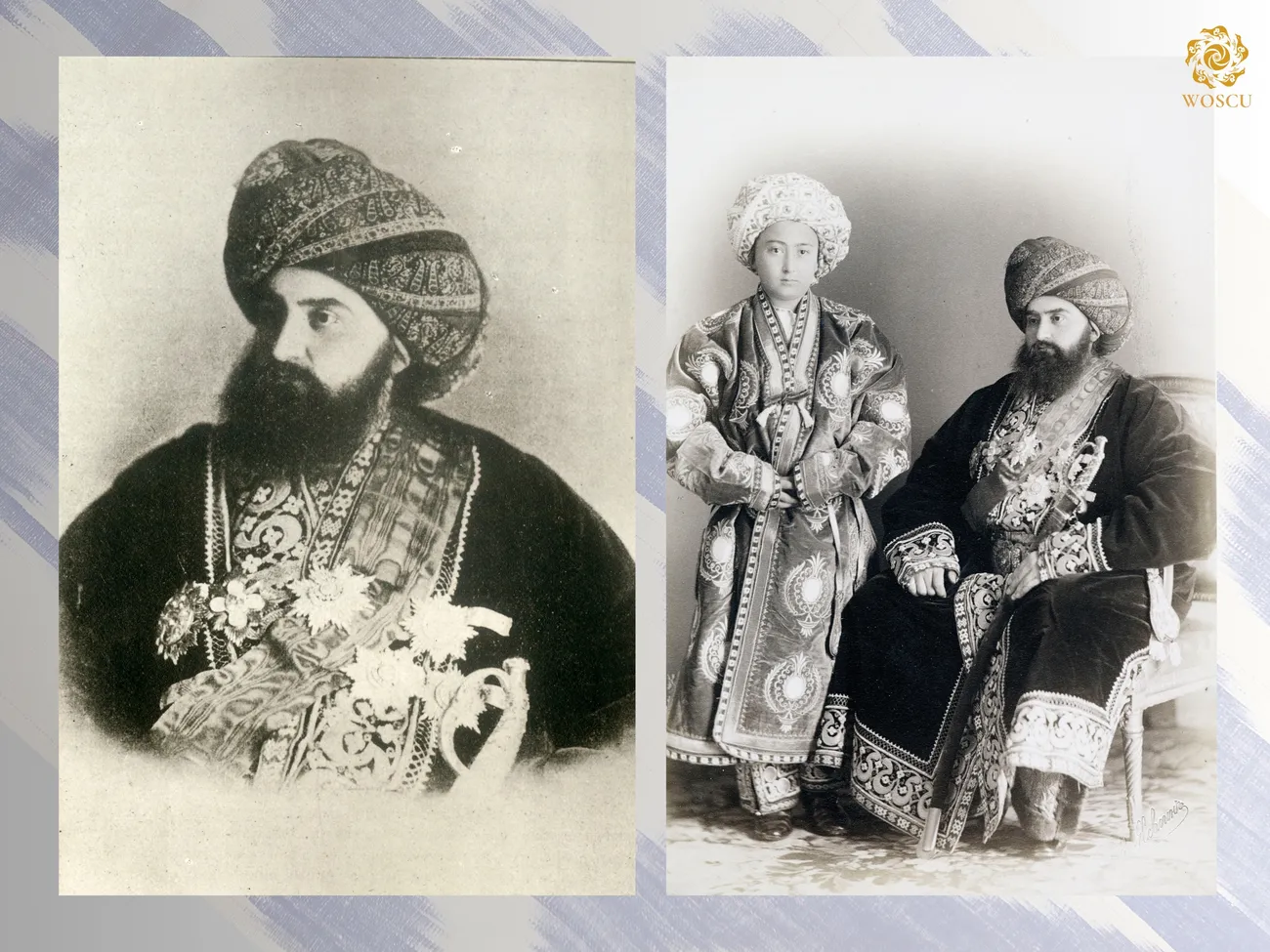Abd al-Ahad was the fourth son of Muzaffar Khan. At the age of 18, he became a Bek in Karmana (about 100 km from Bukhara) and ruled this area until his father died. By inheritance, the eldest son of Emir Abdul-Malik should have led the emirate, but after a failed uprising (1868) he fled to India. The two next born sons died. Therefore, when in 1883 the celebrations on the occasion of the coronation of Alexander III were held in Moscow, Muzaffar sent Said Abd al-Ahad to attend the ceremony and apply for official recognition as the successor to the Emirate of Bukhara.
Contemporaries spoke of him as an enlightened, Europeaneducated ruler, wrote that he was “very clever, talkative, inquisitive.” Abd al-Ahad abolished slavery, destroyed underground prisons, banned torture and brutal executions, reorganized the army, did much to streamline the tax system and the development of the extractive industry and trade in his country. During his time, a branch of the Trans-Caspian railway was built across the lands of the Emirate of Bukhara. He became the first of the emirs of Bukhara whose rule was held in close cooperation with the imperial family. Abd al-Ahad often came to St. Petersburg and enjoyed the friendly attitude of Alexander III and Empress Maria Feodorovna. Nicholas II granted him the title “Highness” (1896) and the military ranks of the general of the cavalry, adjutant general, acting ataman of the Terek Cossack Host, and chief of the 5th Orenburg Cossack regiment.
You can learn more about the topic in the book-album “Uzbekistan in historic photographs of the 19th - early 20th centuries in the collections of Russian archives” (Volume XXXVII) in the series “Cultural Legacy of Uzbekistan”.
The main sponsor of the project is the oil service company Eriell-Group.

